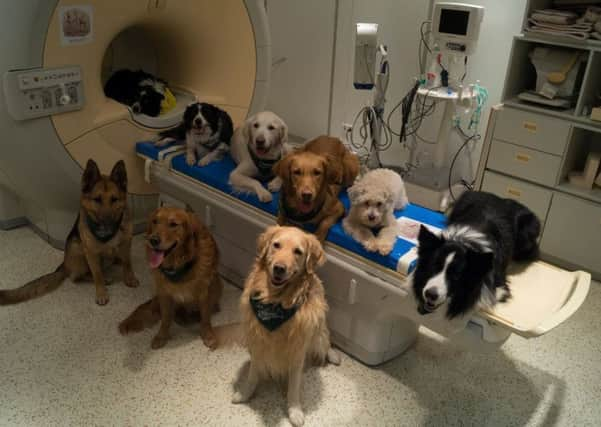Dogs really do understand what we are saying to them


Researchers in Hungary scanned the brains of dogs as they were listening to their trainer speaking in order to determine which parts of their brain the animals were using.
They found that dogs processed words with the left hemisphere, while intonation was processed with the right hemisphere – this is just like humans.
Advertisement
Hide AdAdvertisement
Hide AdThe dogs only registered that they were being praised if the words and intonation were positive.
Meaningless words spoken in an encouraging voice, or meaningful words in a neutral tone, did not have the same effect.
“Dog brains care about both what we say and how we say it,” said the lead researcher in the study, Attila Andics, who is a neuroscientist at Eotvos Lorand University in Budapest.
“Praise can work as a reward only if both word meaning and intonation match.”
Advertisement
Hide AdAdvertisement
Hide AdMr Andics said the findings suggest that the mental ability to process language evolved earlier than previously was believed and that what sets humans apart from other species is the invention of words.
“The neural capacities to process words that were thought by many to be uniquely human are actually shared with other species,” Mr Andics explained.
He added: “This suggests that the big change that made humans able to start using words was not a big change in neural capacity.”
While other species probably also have the mental ability to understand language like dogs, their lack of interest in human speech makes it difficult to test, said Mr Andics.
Dogs have socialised with humans for thousands of years.
Advertisement
Hide AdAdvertisement
Hide AdThis means that they are more attentive to what people say to them and how they say it.
The study was published in the journal Science.
Mr Andics said the dogs involved in the study were awake during the tests.
They were also unrestrained and happy during the experiments.
“They participated voluntarily,” Mr Andics said of the research.